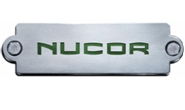Market Segment

August 30, 2018
SMU Steel Summit: "No Comment" from Ferriola on Big River
Written by Tim Triplett
Those hoping for the inside scoop on Nucor’s plans to purchase Big River Steel were left to speculate following comments by Nucor Chairman and CEO John Ferriola during Steel Market Update’s steel summit this week in Atlanta.
Ferriola neither confirmed nor denied Nucor’s rumored interest in BRS, but his posture suggested it’s a possibility. Nucor plans to continue expanding through both internal growth and timely acquisitions, he told the 900 steel executives who filled the Georgia International Convention Center on Wednesday. The steelmaker generated over a billion dollars in cash last year and expects to exceed that performance this year, he said, so it has the resources to take advantage of any opportunities. “We do have the ability to take action when it’s the right time with the right company,” he told SMU President and Publisher John Packard, who moderated the executive one-on-one at the conference.
In addition to Nucor, press reports indicate that a few other bidders have expressed interest in buying the state-of-the-art Big River Steel mill in Osceola, Ark., including Steel Dynamics Inc. and a consortium of investors. As of this publication, SDI had not yet responded to Steel Market Update’s request for comment.
Ferriola was decidedly unapologetic about his company’s strong support for the Trump administration’s steel tariffs. “I think the tariffs have accomplished what they set out to do, to stem the tide, the tsunami, of illegally traded products and provide a level playing field on which American steel companies can compete,” he said, noting that steel imports have declined by about 24 percent since the tariffs have been in play.
He also defended Nucor’s numerous objections to other mills’ requests for tariff exclusions, including those on slabs. Nucor does not produce slabs. Companies such as California Steel Industries and NLMK, which don’t have melt shops of their own and so depend on imported slabs to fill their rolling mills, maintain that the 25 percent tariff on slab imports makes them uncompetitive and threatens the long-term viability of their plants in the United States. “Why file an objection to a product you do not produce?” asked Packard.
Ferriola pointed out that more than 25,000 requests for exclusions have been submitted to the Commerce Department so far, and Nucor has objected to just 8.2 percent (roughly 2,100). In only one of the cases in which Nucor filed an objection did the government grant the request, “which means we are doing a pretty good job of picking which are the right ones to object to,” Ferriola said.
Nucor believes its intervention is for the good of the domestic industry and for the good of national security, as slab imports pose a threat to melt shops in the U.S. “If we allows slabs to come in in an illegal fashion and we [lose] the primary steelmaking, we can’t produce the steel that is necessary to our national defense. So, the reason we objected to slabs is because we feel it is contrary to the basic objective of 232, which is to provide for the national defense,” Ferriola said.
Packard noted that the conversion mills contribute nearly 20 percent of the flat rolled steel to the U.S. economy. “If you immediately stop their ability to get slabs, aren’t you potentially hampering national security?” he asked.
“They can still get slabs, they just have to pay the 25 percent tariff so that the slabs that are imported into this country come in on a level playing field basis,” Ferriola responded. “The outcome of this could be that those companies that don’t now produce slabs could consider investing in their companies and build a melt shop here, and create more jobs. That is what the president said 232 is all about.”
High domestic steel prices threaten to force more manufacturing offshore. “At what point does the steel industry inflict too much pain on its customers? How does Nucor recognize the price pressures and what is fair for U.S. manufacturing?” Packard asked.
Ferriola said Nucor continually monitors the market and looks for signs of customers struggling. “Business is booming. I don’t get the sense they are being squeezed today,” he told the crowd of manufacturing and service center executives. But it’s incumbent on Nucor and the rest of the industry to keep an eye on what is happening to the customer base, he added. “Pigs get fat, hogs get slaughtered. As I tell customers, without you there ain’t any us. If we need to react, we will.”
Raising his voice a bit in defense of his company, Ferriola said “it ruffles my feathers” when people suggest Nucor has benefitted from the tariffs at the expense of others. “Keep in mind that we have invested over $8 billion dollars in the last seven or eight years to grow the company and get ready to take advantage of the upturn in the economy, which is what has happened. Do the tariffs give us a tailwind? Absolutely. The tailwind raises the kite to a higher level, but if you don’t build the kite, all the wind in the world won’t make it rise. We built a good kite.”







